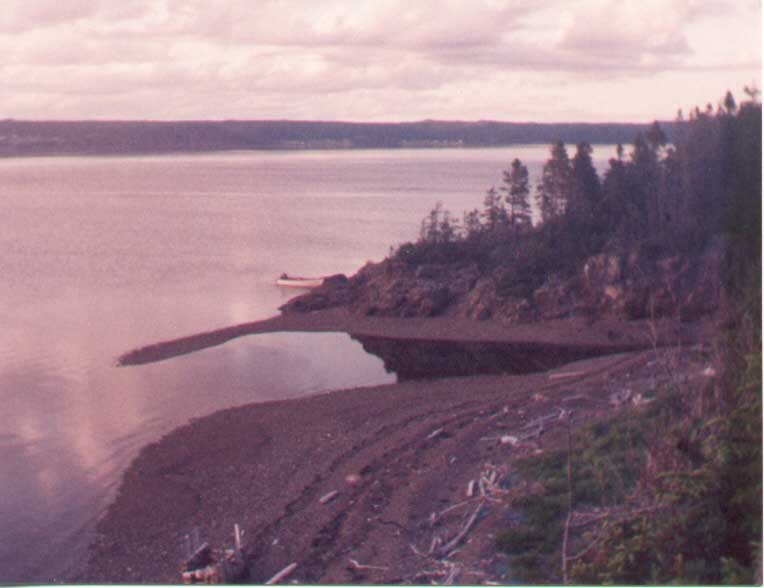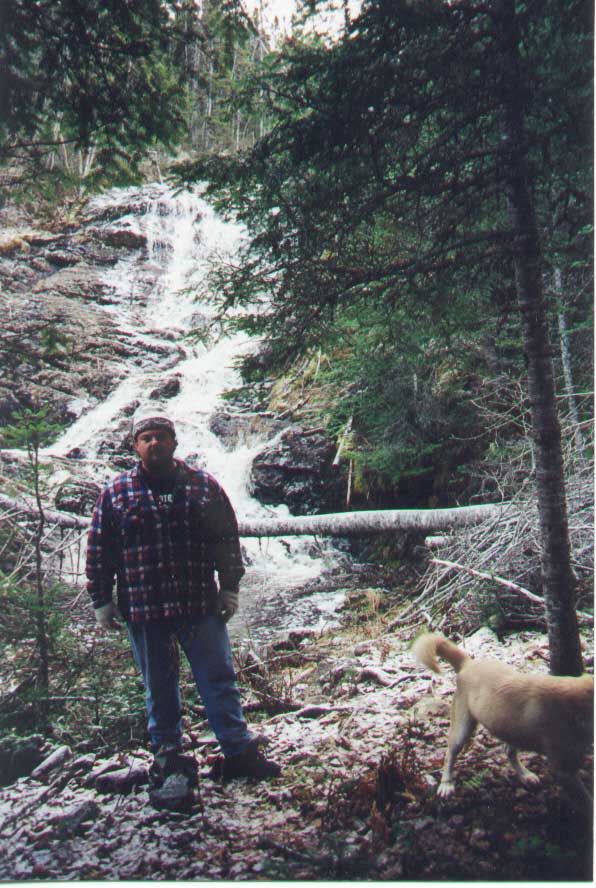About a mile or so down past Apsey Brook, the brook from Friggin’s (Fagan’s) Cove Pond and the steadies runs out to the ocean in Smith’s Sound. Years past, before even my advanced time, the Phillips family had a saw mill down here and you can still see remnants of old slabs, and sawdust grown over by grass to this day.
It was also a very nice spot to come ashore for a family outing, as on the sand bar you can see in the picture, wild mussels would grow. We’d pick some of these, often huge ones, with shells as big as your fist, though the sand bar would shift some years and we’d be left with smaller ones as they regrew. Once picked, we’d put them in a boiler and cook them on a coleman stove. Of course back then, a coleman stove also involved adding naphtha (which we usually called white gas) and pumping it up for pressure, not the easy propane ones we get now.
While they were cooking, us kids would play around the beach, trying to catch trout in the brook, but having much more luck with brannistickles (sticklebacks). We’d take a piggin from the boat, and lay it in the shallow pools, and the brannistickles would swim in to investigate. We’d play games with them for a while, and then let them go again, careful not to stab ourselves on their spines.
Walking in the brook, there’d be a couple deeper pools where you could indeed catch a trout, and we’d do that sometimes. But Newfoundlanders are practical folks generally, and what we catch we like to eat, and brook trout, with their pasty white flesh aren’t very good eating. Up from the deepest pool was the rattle, and it was sight to see and a sound to be heard in spring with the winter run off gushing down the slick rocks. We’d climb up so far, and lay around, but it was pretty slippery and I at least never attempted to climb all the way up.
Trekking back to the beach, we’d find our steaming pot of mussels, and devour them, careful of sand and pearls that you don’t find in today’s cultivated mussels. Some families kept hen’s and for those, they’d gather mussel shells here as well to take back and crush for grist for their hens.
Back in the boat, we’d head back for home, perhaps trying to jig a cod on the way, but satiated with a wonderful feast, cooked in their own ocean water, and with the fresh salt ocean air to stimulate our senses.
Raised in outport Newfoundland in a town of 65 people, I pursued a post secondary diploma in Information Technology right out of High School.
I’ve always been a geek at heart, but yet I love the rural life I grew up with. Fishing, hunting, camping and the great outdoors are still loves of mine, even if I don’t pursue them as often as I once did. Sports were always a big part of our lives, and I played many (badly) and loved them all.




